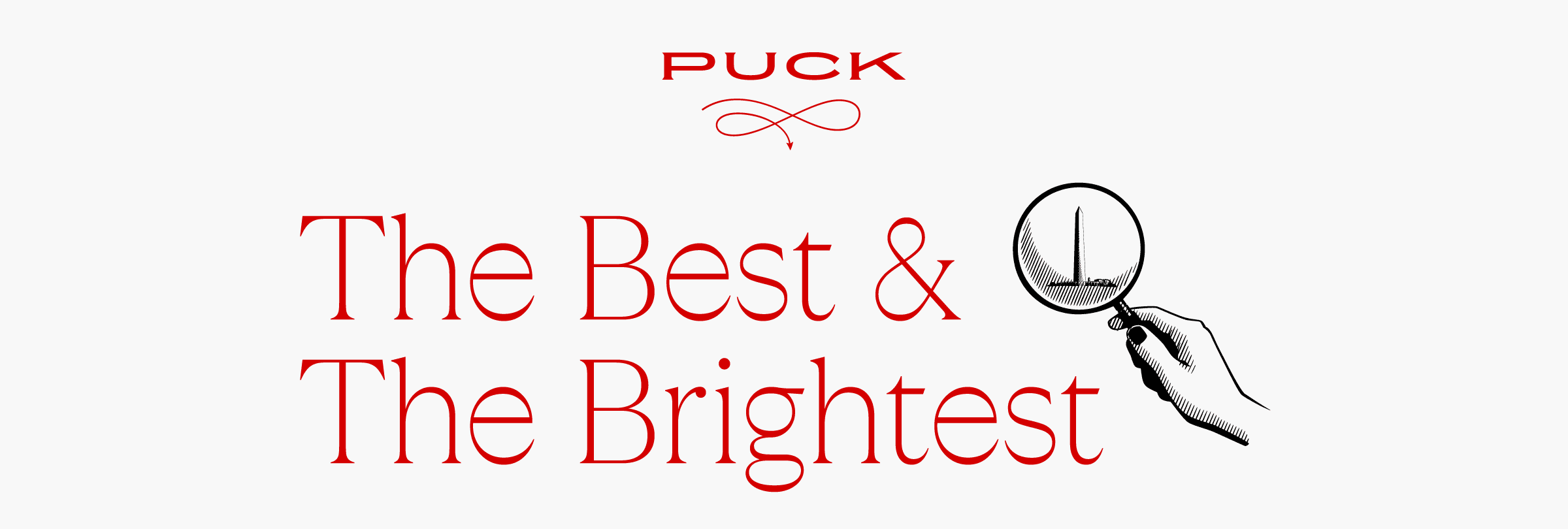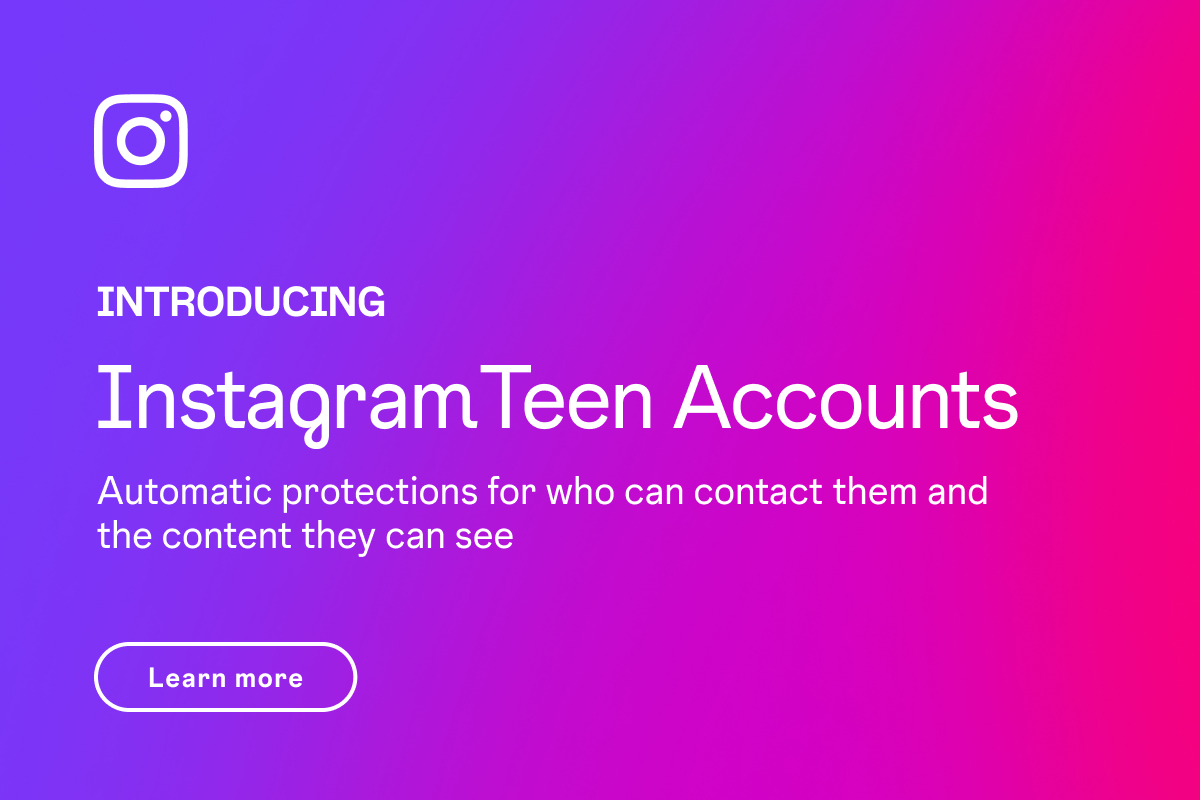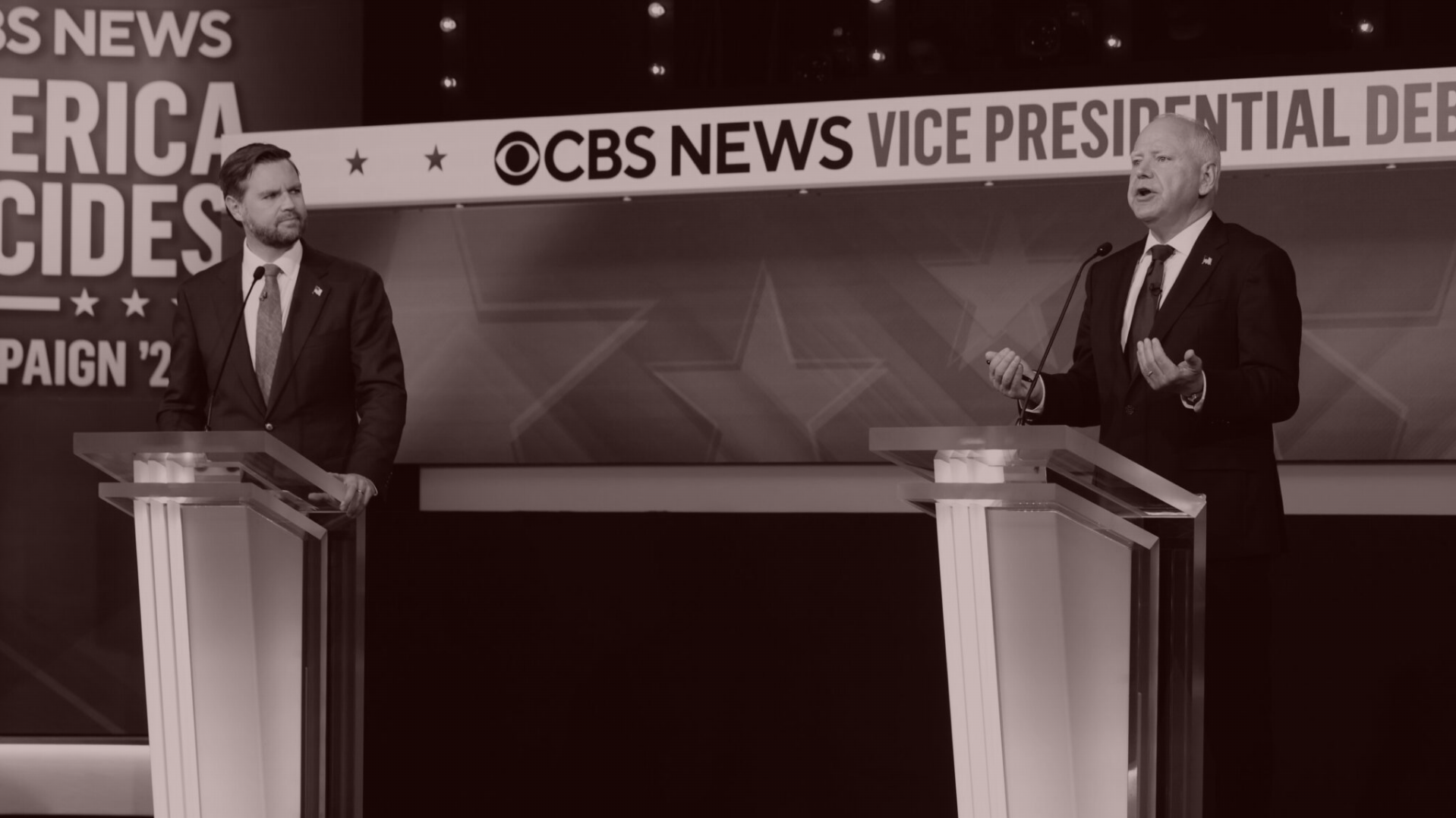 |

|
|
Welcome back to The Best & The Brightest. I’m Abby Livingston.
Before diving into the meat of tonight’s issue—a rollicking and insidery post-V.P. debate roundtable, hosted by John Heilemann and featuring Peter Hamby and Dylan Byers—I take a close look at a surprising development in the campaign fundraising wars, which are heating up now that the new quarterly campaign finance reports are finally coming out.
🎧 All scrapes, no jugular: Also, don’t miss my partner Tara Palmeri’s own post-debate insta-reactions on last night’s special episode of Somebody’s Gotta Win, featuring Axios’s Alex Thompson. Tara and Alex examine all the highlights, break down each candidate’s performance, and talk about what both campaigns need to do as we head into the homestretch of the election. Listen here and here.
Let’s get started…
|
|
A MESSAGE FROM INSTAGRAM
|

|
|
Introducing Instagram Teen Accounts with automatic protections for teens.
Instagram is launching Teen Accounts, with built-in protections limiting who can contact teens and the content they can see. Plus, only parents can approve safety setting changes for teens under 16.
This means parents can have more peace of mind when it comes to protecting their teens.
Learn More
|
|
|
|
|
| The third-quarter federal fundraising numbers started trickling out today, and they included two stunning developments: Democrats Sherrod Brown and Elissa Slotkin raised $31.6 million and nearly $18 million, respectively. These remarkable sums speak to how the relentless national dramas over the past three months—a full-blown Democratic panic on Capitol Hill, two Trump assassination attempts, the fall of Biden, the rise of Harris, etcetera—have impacted down-ballot candidates, all within a single F.E.C. reporting period.
There were at least some indications that things were tracking this way based on committee finance reports, which are filed monthly. But in any case, it seems likely that both Senate and House Democrats will benefit from a mid-July boost, when donors began shoveling money into House and Senate campaigns, anxious that Biden was in jeopardy of losing the White House. Of course, these Democratic fundraising surges are more often about donating against a Republican—Mitch McConnell, Lindsey Graham, Ted Cruz, Susan Collins—than for the Democrat. But Senator Brown and Rep. Slotkin’s Republican opponents (Bernie Moreno and Mike Rogers, respectively) are not household names. On the flip side, Brown and Slotkin are not novelty candidates who benefit from donation windfalls after viral videos or cable news stunts. Indeed, they are a pair of conventional candidates, who follow the D.S.C.C. playbook and run conventional races, which is why it seems likely that we will see more numbers like this on the Democratic side.
As for Republicans, we’ll discover over the next two weeks how they fared in third-quarter fundraising. The biggest news on the Republican Senate front today was captured by a Politico report noting that the N.R.S.C. is moving its remaining independent expenditure money into “hybrid ads,” which are joint ad purchases between campaigns and committees in order to secure the lower candidate rates. And while the Slotkin and Brown numbers look promising for the Democratic cause, Republicans are still very much in the game, with aligned super PAC spending only climbing over the past week. The Mitch McConnell-aligned Senate Leadership Fund is unleashing $68 million in the Blue Wall states, including Slotkin’s Michigan. Brown is currently hunkered down in a massive air war in Ohio, facing a $38 million offensive from the crypto industry. And even the Republicans’ reach-state, Maryland, is getting super PAC money.
And now, the V.P. debate postgame report…
|
|
|
| In keeping with Puck’s newest grand tradition, in the small hours following last night’s very Midwestern showdown between veep contenders J.D. Vance and Tim Walz, Puck partners John Heilemann, Dylan Byers, and Peter Hamby huddled up to break down the evening’s most pertinent plot points: how the moderators actually fared, Vance’s fluent and slippery outing, Walz’s second-half comeback, and much, much more. Their timely debate recap was featured, in full, on both Impolitic and The Powers That Be podcasts, which you can listen to here or here. The following conversation has been lightly edited for length and clarity. |
|
A MESSAGE FROM INSTAGRAM
|

|
|
Introducing Instagram Teen Accounts: a new experience for teens, guided by parents.
Instagram is launching Teen Accounts, with built-in protections limiting who can contact teens and the content they can see. Plus, only parents can approve safety setting changes for teens under 16.
So parents can have more peace of mind when it comes to protecting their teens.
Learn More
|
|
|
| Grading the Fact-Checkers |
|
| John Heilemann: Dylan, you’re the media expert here. How do you think the moderators did? Was this a well-run debate? Did they do a good job? Did they abdicate their responsibility and so forth?
Dylan Byers: It’s never a good look to cut the candidates off, like they did during the back-and-forth about what’s happening in Springfield, and so on. It opens up accusations of tipping the scales. My main takeaway, though, is that I actually don’t think that the question of the moderators, or the fact-checking, or any of that deserves that much weight this time around.
However, I think the moderators—in terms of their poise, in terms of how they handled the bait—actually did a fine job, but I wish they’d asked some different questions, and spent more time talking about different issues. But I don’t think, coming out of this debate, that there’s a reasonable case to be made by either side that this was tipped in one direction or another by either Norah O’Donnell or Margaret Brennan.
John: Peter, give me your big, sweeping overview of the night. Who won? Who lost? The main thing, I thought, was this is what the old debates used to be like—not that eventful and kind of tedious.
Peter Hamby: It did feel like a Mitt Romney–Obama debate or something like that, or even like a debate for a Senate race. Dylan’s right that they probably could have talked about some different policies, and although they did joust a bit, they were also kind of agreeable with each other. I was struck by the headline on the New York Times homepage right after the debate: “Vance and Walz Argue Over How to Improve Americans’ Lives,” which, again, gets to the point that they were talking about a bunch of different issues, but also implied in that headline is the lack of a headline. There weren’t any fireworks. It wasn’t a Trump-Kamala debate or a Trump-Biden debate.
I think the consensus is loosely that J.D. Vance proved himself to be a more able debater, a guy who went to Yale Law School and who could be a podcaster in another life. He’s just very good at talking; he’s good at evading questions; he’s good at being slick. And then Tim Walz, on brand in his own way, was a bundle of nervous energy, certainly in the beginning. I get the sense from Democrats that J.D. Vance probably had a better night. But again, we can talk later as to whether there’s any real political impact flowing from that.
John: Dylan, did Tim Walz seem nervous to you? I thought, at least in the first half of the debate, Walz seemed notably nervous and did not perform that well. It seemed like he was getting bested, in purely performance metrics, by J.D. Vance.
Dylan: Definitely in the first half of the debate. He certainly picked it up in the second. I would say if you’re weighing this in terms of just sheer performance, optics, and command of the stage, then you give the game to Vance, you give the first half to Vance, and you maybe give the second half to Walz. I think that there was certainly a period in Walz’s opening remarks where, if you’re a Democrat, you’re like, Holy shit, this is gonna be bad. But I think the next hour and a half, you’re just sort of feeling like, Fine, Vance is better at this than his running mate, and Walz is not as good at this as his running mate.
John: Right. The job of running mates, traditionally, is to be some sort of attack dog, and J.D. Vance has played that role. And that version of Tim Walz, who has been an attack dog in certain settings, was kind of absent tonight. There were lots of places where you thought he would really sink his teeth into J.D. Vance. You often have these incredible fireworks in V.P. debates because the candidates really come out swinging, but Walz was often agreeing with J.D. Vance. I was a little surprised by that, given the fact that he’s campaigned his way onto the ticket by attacking Republicans. Until you got to the January 6 thing—which was really more of an attack on Trump than Vance—he didn’t go at Vance with the intensity you might have expected.
Dylan: Maybe that was sort of a Get through the debate and do no harm approach. But what you’re talking about has been vexing me—and I’m sure plenty of Democrats—for weeks now. Like you said, he campaigned his way onto the ticket by going on cable news, by doing a media blitz. And since then, where has he been? J.D. Vance has been everywhere—not just Fox News, but he’ll go on CNN, he’ll go on Meet the Press, he’ll talk to his traveling press corps. He does web videos, he does podcasts. Walz is doing campaign events, but in terms of engaging and jousting with people, he hasn’t been doing that. Has the campaign realized that maybe he’s not as talented as we thought in the beginning? Or maybe it was more that, We need to commit to doing a shitload of debate prep with this guy, because it’s really the only thing that matters in the entire campaign for a V.P. candidate.
|
|
|
|
|
| John: Relatively early in the debate, we got into the issue that the Trump-Vance campaign wants to focus on, which is immigration. Since the last Trump-Harris debate, we’re still talking about eating cats and dogs and pets, even though that genuinely outlandish and racist lie has been debunked. J.D. Vance even admitted that he made it up. When Tim Walz raised it, I thought he would have attacked it more aggressively, and then he sort of threw a little bouquet to Vance when he said, “I believe Senator Vance wants to solve it.” I find it really odd.
Dylan: It’s totally odd. First, let’s acknowledge that there is the J.D. Vance who goes out and says those crazy things. And then there’s the J.D. Vance who went through debate prep and came out polished and kind and made everyone feel like we were living in 2012 again. I think Walz showed up ready to hit Vance on some of these points, and then Vance showed up as this nice guy who was offering all these compliments, and Walz fell into this trap of being civil back to him. By letting Vance sanewash Trump, all of a sudden Walz found himself in this awkward position of sanewashing Vance.
John: Peter, there’s a consensus that his response to the issues in Springfield was the strongest part of the debate for J.D. Vance, and that he handled that as well as you could. Would you agree?
Peter: That’s a great example of how slippery J.D. Vance is, and how talented of a law school debater he is. He’s the one who elevated the Springfield fake news in the first place. And we saw in the presidential debate in Philadelphia how Donald Trump wasn’t able to resist going after the wackadoodle aspect of it. And here we have J.D. Vance, not only doing a cleanup of his own mess, but spinning it into an advantage on the topic of immigration.
He couldn’t resist pivoting to immigration every single opportunity he could. It’s a base-rallying tactic for Republicans, and I think it’s a resonant issue with independents and especially men. I think Vance did a very good job of bringing that up in a way that sounded academic, and smart, and came off sounding actually a little reasonable, and not this, Build the wall, execute all the immigrants rhetoric, which is sort of how Trump talks about it.
Dylan: I think conventional wisdom here is that, in the boxing match formula measuring optics, command, and presentation, Vance is the indisputable winner. And yet, the other narrative that we keep coming back to is that Vance just code-switched. There was the Vance who said the crazy shit, and then there was the Vance who came onto the debate stage and sounded totally different. And you’re like, Okay, well, whose job was it to come back at him and hold him to account? It was Walz’s job, and I think that is where Walz’s inexperience showed. He just constantly seemed to be on the back foot in that regard.
John: There was the moment where Tim Walz’s inexperience as a debater became most clear, which was when Margaret Brennan asked about the trip he said he took to Hong Kong around the time of the democracy protests in Tiananmen Square. He spoke for nearly two minutes and it was just nonsense. That was a moment when everybody on my text threads were going, Governor Shapiro, call your office!
Peter: Frankly, claiming you were somewhere and misspeaking or misremembering how events actually went down is not the worst crime. Brian Williams famously misremembered himself on a helicopter and got fired for it, and now he’s going to get paid a nice chunk of change to host an Election Night special on Amazon. I think misstating, or perhaps even lying, about where you were during Tiananmen Square is not the same as being unable to acknowledge who won the 2020 election. A lot of people are going to say some version of, Vance won, Walz was awkward, but Vance refused to acknowledge the results of the 2020 election.
John: Peter, do you think that Vice President Harris, whose performance in the debate against Donald Trump was, if not perfect, awfully good, was watching Walz stumble and thought, Oh, boy, that wasn’t so great?
Peter: Yes, absolutely. There’s absolutely a world where Kamala Harris is sitting in a room with some advisors, and they’re looking at each other and rolling their eyes. The first real thing that V.P. candidates have to do is this debate, and this was the first time Kamala is actually seeing him under the spotlight.
In CBS News’s snap poll last night, 42 percent said J.D. Vance won, 41 percent said Tim Walz won, and 17 percent said it was a tie. NBC News did a focus group of undecided voters in Pennsylvania, where five out of six of them said Tim Walz won. So maybe J.D. Vance read as a typical politician, or too slick to people, and Tim Walz fumbling through his answers seemed a little more relatable.
John: When the dust is cleared, I don’t see a world where he hasn’t at least fought to a tie because of that January 6 question—the mainstream media, I think, will focus a lot on this January 6 thing.
|
|
|
| Peter: John, let me ask you a question: Do you think this will be the last debate? Do you think Trump’s going to come off the sidelines?
John: I’ve thought all along that there was a chance there would be another debate. I think that Trump is freaked out that Harris is not only leading in all the polling averages, but that she has this small but stable and persistent lead in the Blue Wall states. When Kamala became the candidate, Trump’s lizard brain was basically like, There’s no way the white working-class voters of Michigan, Pennsylvania, Wisconsin, are going to vote for this Black woman. And now I think it makes Trump crazy, because the Blue Wall is how he won in 2016. And the notion that his running mate, who’s been slandered throughout the campaign—which Trump, on some level, basically enjoys—is now being praised for being a good debater makes Trump crazy. I wouldn’t bet on it, but I don’t think it’s impossible. What do you guys think?
Dylan: I don’t pretend I have any idea what’s going on in that guy’s head, but my assumption would be that the opening he would see is a return to CNN, because in that forum, there was minimal, almost zero, fact checking. And I think he probably remembers the first debate favorably—even if it was against a different candidate. He might think there’s a chance there to have the last say, and not feel like he’s being overshadowed by his running mate.
Peter: It’s a cliché at this point among Democratic pundits and Harris campaign operatives—that the more people see her and hear her, the more they like her. That’s actually borne out in the data. The race continues to move in her direction. So, on one hand, I’m like, why would you fuck that up? On the other hand, it does seem like the more she does interviews, podcasts, debates, appearances, etcetera, people are like, Okay, okay. I think I like her. I see it both ways. But I do think there’s more of a risk than a reward for her to do another debate.
|
|
|
|
| FOUR STORIES WE’RE TALKING ABOUT |
|
|
|

|
 |
|
|
|
Need help? Review our FAQs
page or contact
us for assistance. For brand partnerships, email ads@puck.news.
|
|
You received this email because you signed up to receive emails from Puck, or as part of your Puck account associated with . To stop receiving this newsletter and/or manage all your email preferences, click here.
|
|
Puck is published by Heat Media LLC. 227 W 17th St New York, NY 10011.
|
|
|
|





















